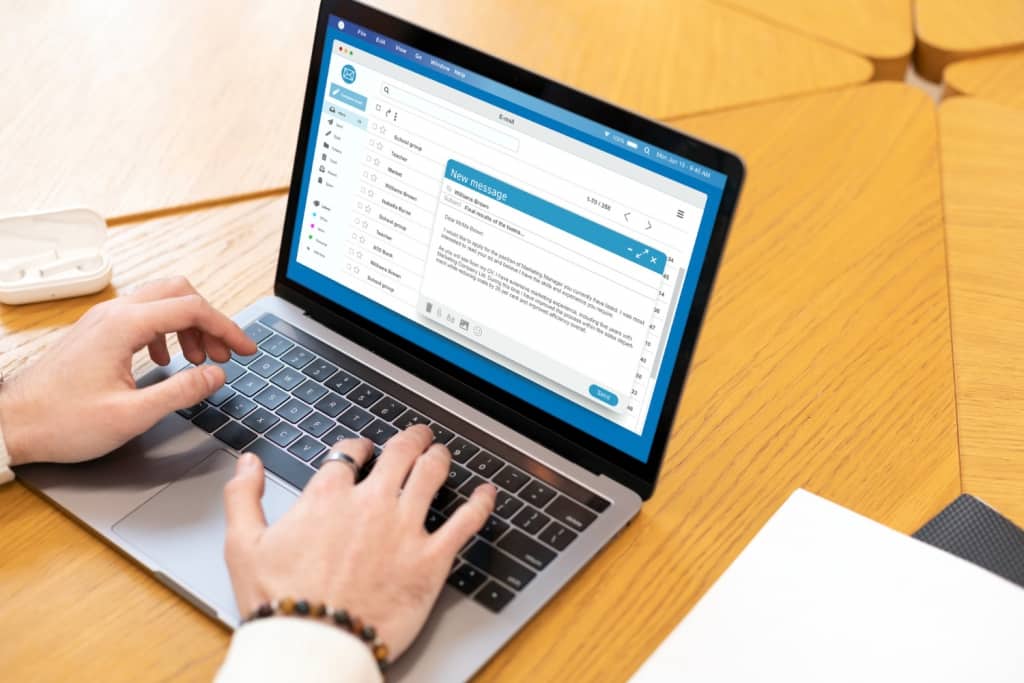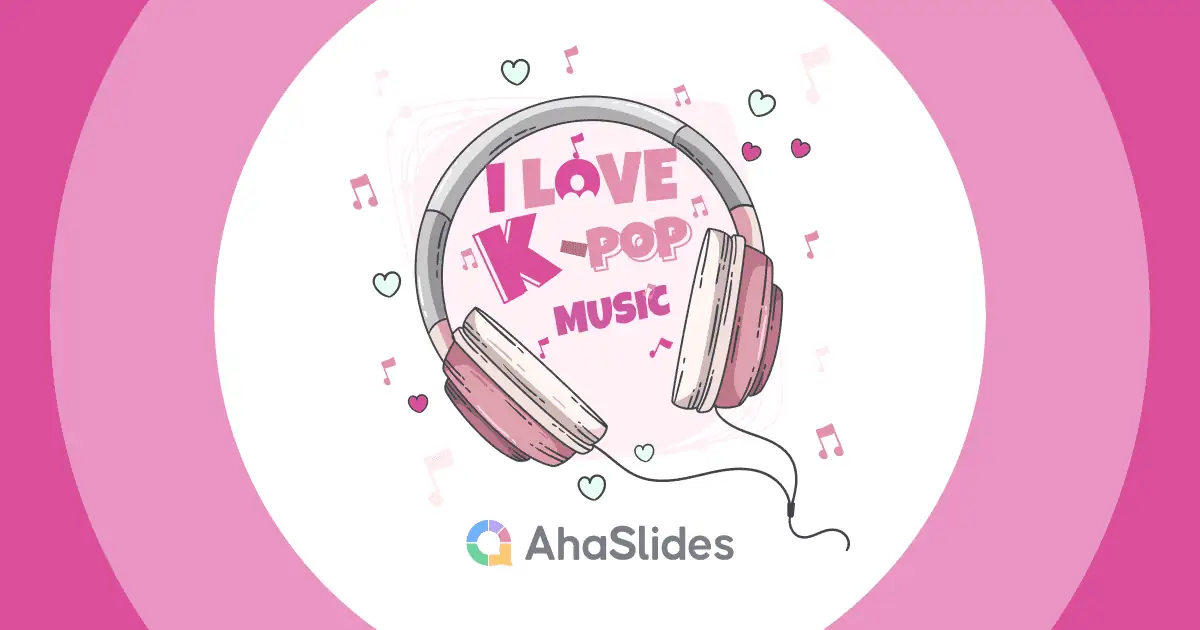우리는 모두 거기에있었습니다. 누군가 "잘 지내세요?"라고 물으면, "잘 지내세요" 또는 "괜찮아요"라는 간단한 대답으로 자동 응답이 시작됩니다. 정중하기는 하지만, 이러한 대답은 종종 우리의 진짜 감정을 가리는 경우가 많습니다. 인생은 어려울 수 있습니다그리고 때로는 "좋은" 하루가 정말 끔찍하게 느껴질 수도 있습니다. 이 질문을 진정한 소통의 기회로 삼는다면 어떨까요? pen_spark
이 게시물에서는 표준 답변을 변경하고 자신을 표현하는 70가지 이상의 방법을 살펴보겠습니다. 어떻게 지내세요 답글 특정 상황에서. 누가 알아? 대화에서 새로운 수준의 연결을 발견할 수 있습니다.
차례
- 일상적인 상황에서 답장을 어떻게 하고 있습니까?
- 공식적인 상황에서 회신하는 방법
- 힘든 시간을 보낼 때 답장을 어떻게 하고 있습니까?
- 고마울 때 대답하는 방법
- 공식 이메일에 대한 회신은 어떻게 하고 계십니까?
- 자주 묻는 질문들 (FAQ)

더 나은 참여를 위한 팁
- 라이브 Q & A 프레젠테이션에 힘을 실어주는 도구
- 질문하는 방법
- 누군가에게 괜찮은지 물어보는 방법

쇄빙선 세션에서 더 많은 재미.
지루한 오리엔테이션 대신, 친구들과 함께 즐길 수 있는 재미있는 퀴즈를 시작해 보세요. AhaSlides 템플릿 라이브러리에서 무료 퀴즈에 참여해 보세요!
🚀 무료 퀴즈 받기☁️
일상적인 상황에서 답장을 어떻게 하고 있습니까?
편안한 상황에서는 길게 대답할 필요가 없습니다. 하지만 질문하는 사람과의 관계에 따라 대답을 조절하는 것이 좋습니다. 예를 들어, 친한 친구에게는 아는 사람보다 더 솔직하게 대답할 수 있습니다.
게다가, 질문에 답하며 상대방의 안부를 묻는 것이 예의입니다. 상대방을 배려한다는 것을 보여주고 더 균형 잡힌 대화를 이끌어낼 수 있습니다.
다음은 일반적인 상황에서 응답하는 방법에 대한 몇 가지 예입니다.
- 괜찮아요, 고맙습니다!
- 나쁘지 않은데요, 당신은 어떻습니까?
- 저는 잘 지내요. 잘 지내세요?
- 불평할 수 없어요. 오늘 하루는 어떻게 보내셨나요?
- 꽤 좋아, 물어봐줘서 고마워!
- 너무 초라하지 않은데 넌 어때?
- 잘 지내시죠. 생활은 어떠세요?
- 잘 지내고 있어요. 연락 주셔서 감사합니다!
- 저는 잘 버티고 있어요. 당신은 어떠세요?
- 저는 잘 지내고 있어요. 이번 주는 어떻게 보내셨나요?
- 저는 잘 지내고 있어요. 당신은 어떠세요?
- 불평할 정도는 아닙니다. 당신은 어떤가요?
- 기분이 아주 좋아요. 물어봐줘서 고마워요!
- 잘하고 있어, 너 자신은 어때?
- 잘 지내요. 오늘은 어떻게 지내세요?
- 저는 잘 지내고 있어요. 당신은 어때요?
- 다 괜찮아요. 당신은 어때요?
- 불평할 수 없어요. 잘 지내세요?
- 꽤 좋아, 넌 어때?
- 나쁘지 않네요. 오늘 하루는 어떠세요?
- 저는 괜찮아요. 당신은 어때요?
- 상황이 좋은데 넌 어때?
- 저는 잘 지내고 있어요. 질문해 주셔서 감사합니다!
- 오늘 하루는 직장에서 바빴지만, 성취감은 느껴집니다.
공식적인 상황에서 회신하는 방법

격식을 갖춘 상황에서는 공손한 어조와 전문적인 태도를 유지하기 위해 격식 있는 언어를 사용하고 속어나 구어체를 피해야 합니다.
힘든 하루를 보내더라도, 일이나 상황의 긍정적인 면에 집중해 보세요. 그리고 소통하는 사람이나 조직에 감사를 표하는 것도 잊지 마세요.
다음은 몇 가지 예입니다.
공식적인 상황에서 회신하는 방법:- 잘 지내고 있습니다. 방문해 주셔서 감사합니다. 오늘은 무엇을 도와드릴까요?
- 저를 확인해 주셔서 감사합니다. 어떻게 도와드릴까요?
- 잘 지내고 있어요. 물어봐 주셔서 감사합니다. 지금까지 정말 생산적인 하루였어요.
- 네, 잘 됐어요. 문의해 주셔서 감사합니다. 세심한 배려에 감사드립니다.
- 잘 지내고 있어요. 물어봐 주셔서 감사합니다. 오늘 회의가 기대됩니다.
- 괜찮아요, 고마워요. 오늘 여기 와서 정말 기쁩니다.
- 문의해 주셔서 감사합니다. 잘 지내고 있습니다. 귀사 팀과 함께 일하게 되어 영광입니다.
- 잘 지내고 있어요. 물어봐 주셔서 감사합니다. 오늘 이 자리에 함께할 수 있어서 감사합니다."
- 잘 지내고 있어요. 들러주셔서 감사합니다. 바쁜 하루지만 잘 지내고 있어요.
- 괜찮아요. 질문해 주셔서 감사합니다. 이 프로젝트에 대해 더 자세히 이야기해 보고 싶습니다.
- 괜찮습니다. 감사합니다. 오늘 통화할 수 있는 기회를 주셔서 감사합니다.
- 잘 지내고 있어요. 문의해 주셔서 감사합니다. 이 프로젝트에 참여할 수 있는 기회를 주셔서 감사합니다.
- 잘 지내고 있습니다. 관심을 가져주셔서 감사합니다. 해결책을 찾을 수 있을 거라고 확신합니다.
- 저는 괜찮습니다. 방문해 주셔서 감사합니다. 귀하의 목표에 대해 자세히 알고 싶습니다.
- 잘 지내고 있어요. 질문해 주셔서 감사합니다. 자세한 내용을 함께 검토해 볼 수 있기를 기대하겠습니다.
- 잘 지내고 있어요. 문의해 주셔서 감사합니다. 지금까지의 진행 상황이 낙관적입니다.
- 저는 잘 지내고 있고, 신경 써주셔서 감사합니다. 프로젝트의 세부 사항을 빨리 처리하고 싶습니다.
- 잘 지내고 있어요. 질문해 주셔서 감사합니다. 최고의 서비스를 제공하기 위해 최선을 다하겠습니다.
힘든 시간을 보낼 때 답장을 어떻게 하고 있습니까?

힘든 시간을 보내고 있다는 것을 인정하고 자신의 감정에 대해 솔직하게 이야기하는 것은 괜찮습니다. 잘못된 모든 것에 대해 자세히 설명할 필요는 없습니다. 대신 간결하고 요점만 명확하게 답변하세요.
또한, 도움이나 지지를 요청하는 것을 두려워하지 마세요. 다른 사람들에게 어려움을 겪고 있다는 것을 알리면 외로움을 덜 느끼는 데 도움이 될 수 있습니다.
다음은 필요할 수 있는 몇 가지 예입니다.
- 지금은 상황이 썩 좋지는 않지만, 걱정해 주셔서 감사합니다.
- 지금 힘든 시기를 겪고 있어요. 하지만 극복하려고 최선을 다하고 있어요.
- 힘든 시간을 보내고 있어요. 하지만 결국에는 나아질 거라는 걸 알아요.
- 저는 힘든 시기를 겪고 있지만, 계속 나아갈 수 있도록 최선을 다하고 있습니다.
- 솔직히 말해서, 저는 힘들어요. 당신은 어때요?
- 오늘은 힘든 하루였지만, 긍정적인 면에 집중하려고 노력하고 있어요.
- 오늘은 별로 잘 지내지 못하지만, 강해지려고 노력하고 있어요.
- 오늘은 힘든 시간을 보내고 있어요. 하지만 저만 이런 건 아니라는 걸 알아요.
- 오늘은 힘든 하루였지만, 주의를 기울이고 현재에 집중하려고 노력하고 있습니다.
- 솔직히 말해서, 지금은 정말 힘들어요.
- 힘든 시간이었지만, 희망을 잃지 않으려고 노력하고 있어요.
- 저는 잘 지내고 있지는 않지만, 친구들과 가족들의 지원에 감사하고 있습니다.
- 솔직히 말해서 오늘은 꽤 벅찼습니다.
- 저는 힘든 시간을 보내고 있지만, 최선을 다해 강인하게 지내려고 노력하고 있습니다.
고마울 때 대답하는 방법
누군가가 안부를 물을 때뿐만 아니라, 꾸준히 감사를 표현하는 습관을 들이세요. 이렇게 하면 전반적으로 더 긍정적인 사고방식을 기르는 데 도움이 될 것입니다.
다음은 몇 가지 예입니다.
감사함을 느낄 때 답장을 어떻게 하고 있습니까?- 저는 정말 기분이 좋고, 건강과 가족에게 감사합니다.
- 잘 지내고 있어요. 물어봐 줘서 고마워요. 오늘은 정말 행운이고 감사한 마음이에요.
- 저는 잘 지내고 있고, 제 직장과 집, 그리고 사랑하는 사람들에게 감사하는 마음을 갖고 있습니다.
- 저는 잘 지내고 있고, 제가 배운 교훈과 제 삶 속의 사람들에게 감사하는 마음을 느낍니다.
- 저는 저를 형성한 모든 경험에 대해 축복받았다고 느낍니다.
- 저는 삶을 특별하게 만드는 작은 기쁨의 순간에 감사함을 느낍니다.
- 저는 잘 지내고 있고, 주변 자연의 아름다움에 감사하고 있습니다.
- 저는 제 삶 속에서 매일을 더 밝게 만들어 주는 사람들에게 감사함을 느낍니다.
- 저는 정말 기분이 좋고, 낯선 사람들의 친절과 가족의 사랑에 감사하고 있습니다.
- 저는 잘 지내고 있고, 다른 사람을 도울 수 있는 능력에 감사하고 있습니다.
- 저는 저를 행복하게 하는 삶 속의 작은 기쁨에 감사합니다.
- 저는 기분이 좋고, 지금까지 만든 추억과 앞으로의 모험에 감사합니다.
공식 이메일에 대한 회신은 어떻게 하고 계십니까?

공식적으로 의사소통을 하므로 회신은 적절하고 전문적이어야 합니다.
또한 응답 시 공손한 언어, 적절한 문법 및 구두점을 사용해야 합니다. 전문적인 어조를 전달하고 오해를 피하는 데 도움이 될 것입니다. 질문에 답한 후 받는 사람이 어떻게 지내고 있는지 또는 도와줄 수 있는 일이 있는지 물어봄으로써 관심을 보여 주십시오.
다음은 몇 가지 예입니다.
공식 이메일에 대한 회신은 어떻게 하고 계십니까?- 잘 지내고 있어요. 친절하게 문의해 주셔서 감사합니다. 다시 연락 주셔서 반갑습니다.
- 걱정해 주셔서 감사합니다. 저는 잘 지내고 있고, 당신도 잘 지내시길 바랍니다.
- 방문해 주셔서 감사합니다. 저는 잘 지내고 있고, 당신도 잘 지내시길 바랍니다. 어떻게 도와드릴까요?
- 잘 지내고 있어요. 질문해 주셔서 감사합니다. 선생님도 잘 지내시길 바랍니다. 어떻게 도와드릴까요?
- 문의해 주셔서 감사합니다. 잘 지내고 있습니다. 감사합니다. 다른 필요 사항이 있으시면 언제든지 말씀해 주세요.
- 이메일을 보내주셔서 감사합니다. 저는 잘 지내고 있고, 건강하게 이 메시지를 받으시길 바랍니다.
- 잘 지내고 있어요. 물어봐 주셔서 감사합니다. 이번 주도 지금까지 순조롭게 보내시길 바랍니다.
- 배려해 주셔서 감사합니다. 잘 지내고 있어요. 어떻게 도와드릴까요?
주요 요점
캐주얼한 채팅이든 공식적인 이메일이든, 답장할 때는 구체적인 상황에 맞춰 답장을 작성하고 진정성 있게 자신을 표현해야 합니다. 따라서 위의 70가지 이상의 구체적인 상황에서의 '잘 지내고 있니?' 답장이 다른 사람들과 더 깊은 소통을 하는 데 도움이 되기를 바랍니다.
그리고 잊지 마세요. 아하 슬라이드 청중을 참여시키고 수행 방식에 대한 피드백을 수집하는 혁신적인 방법을 제공합니다. 우리와 함께 템플릿, 당신은 쉽게 만들 수 있습니다 대화 형 투표 및 질문 게시판 청중이 실시간으로 자신의 생각과 감정을 공유할 수 있습니다. 그렇다면 우리에게 한 번 시도해보고 프레젠테이션을 다음 단계로 끌어올리는 것은 어떨까요?
자주 묻는 질문들 (FAQ)
왜 사람들은 '잘 지내세요?'라고 묻는가?
사람들은 종종 "잘 지내세요?"라고 묻습니다. 이는 상대방을 아끼고 당신의 안녕에 관심이 있다는 것을 보여주기 위한 방법입니다. 이 인사말은 가벼운 대화부터 공식적인 회의나 이메일까지 다양한 상황에서 흔히 사용됩니다.
직장에서 "잘 지내세요?"라는 질문에 어떻게 대답해야 하나요?
직장에서 "잘 지내세요?"라는 질문에 다음과 같이 답할 수 있습니다.
– 네, 잘 됐어요. 문의해 주셔서 감사합니다. 세심한 배려에 감사드립니다.
– 잘 지내고 있어요. 물어봐 주셔서 감사합니다. 오늘 회의가 기대됩니다.
– 괜찮아요, 고마워요. 오늘 여기 와서 정말 기쁩니다.
– 문의해 주셔서 감사합니다. 잘 지내고 있습니다. 귀사 팀과 함께 일하게 되어 영광입니다.
– 잘 지내고 있어요. 물어봐 주셔서 감사합니다. 오늘 이 자리에 함께할 수 있어서 감사합니다.
어떻게 지내세요?
– 간단하고 정중하게 "잘 지내세요?"라고 물어보세요.
– "잘 지냈어요?"라는 질문으로 전반적인 웰빙에 대해 물어보세요.
– "최근 직장/학교 생활은 어때요?"와 같이 구체적인 측면에 대해 물어보세요.
– "스트레스를 받고 있는 것 같은데, 잘 지내세요?"라고 공감적으로 말하세요.
– "최근에 생활이 어땠어요?"라고 물어보면 기분이 좀 나아질 거예요.








